Are You Eating a Balanced
Vegetarian Diet
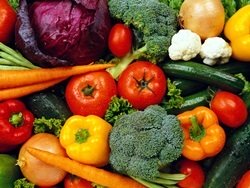
While it isn't hard to eat a balanced vegetarian diet, many people still struggle to get the vitamins and nutrients they need solely from plant based foods.
No matter what type of vegetarian you are, there are lots of ways to ensure you are getting the proper nutrition from what you eat. You just have to know what your body needs and what types of foods you can get it from.
If you eat a wide variety of foods, getting the nutrients you need is not hard at all. However, if your diet is more restrictive, such as that of a vegan, you may want to pay close attention to the vitamins that are most commonly found in dairy products, eggs and other animal products.
The following is a list of the vitamins and nutrients you should keep an eye on, to ensure you are getting what you need to remain happy and healthy on a balanced vegetarian diet.
Curious about the types of food a vegetarian eats? Use the vegetarian diet pyramid to get an idea of what a balanced vegetarian diet consists of.Calcium
If you haven't cut milk from your diet, you don't have to worry as much about your calcium intake, but it's a good idea to monitor it somewhat to ensure you are consuming enough. If you don't consume milk products, try adding a few of these foods to your daily diet to increase your calcium.
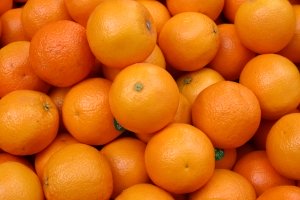
- Calcium fortified cereals
- Soy milk
- Orange juice
- Legumes
- Leafy green vegetables
- Nuts
- Seeds
- Tofu
- Calcium supplements
Vitamin D
Again, for vegetarians who still consume milk products regularly, Vitamin D isn't hard to come by, but for those who don't drink milk or eat dairy, here are a couple of great alternative sources to incorporate into your meals.
- Fortified breakfast cereals
- Soy milk
Iron
Though it is most known for being found in animal products, iron can come from many delicious sources. In fact, it's quite easy to find in a plant based diet if you know what to look for, and your body will absorb it just just as readily from plant based sources as it will from meat and other animal products.
In addition to the following foods, there are daily vitamins and supplements you can take to help ensure you are getting enough iron in your diet. If you feel you may have difficulty consuming enough iron containing foods to meet your daily recommendations, vitamins containing iron are a great way to help supplement a balanced vegetarian diet.
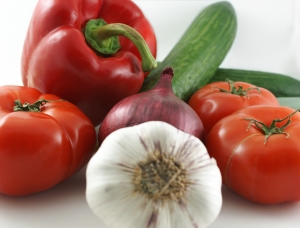
- Oats
- Peas
- Lentils
- Dark green & leafy veggies
- Potatoes
- All types of beans
- Whole grain foods
- Foods rich in Vitamin C
Vitamin B12
Vitamin B12 is an absolute must if you're trying to consume a healthy, balanced vegetarian diet... especially if your are pregnant or nursing. It is, however, the only vitamin that cannot be found in plant based food sources. If you do not eat animal products such as meat, milk and eggs, you will have to get your B12 from other, alternative sources.
- Soy milk
- Breakfast cereals
- B12 supplements
Protein
Protein is very important part of a balanced vegetarian diet, and fairly easy to come by no matter what your diet restrictions are. There are tons of wonderful sources including the most well known foods such as beans, peanut butter, nuts and seeds.
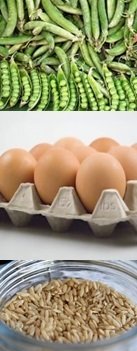
- Tempeh
- Quinoa
- Soy milk
- Tofu
- Soybeans
- Black Beans
- Kidney Beans
- Veggie Burger
- Pinto Beans
- Lentils
- Garbanzo Beans (and hummus)
- Peanut Butter
- Nuts
- Seeds
- Avocados
- Refried Beans
- Peas
- Textured Vegetable protein
- Whole grains
Omega-3 fatty acids
Omega-3 fatty acids are most commonly found in eggs and fish. However, if you don't consume either of these, there are some really great alternatives you can incorporate into your daily meals to ensure you get plenty of Omega-3 fatty acids.
- Eggs
- Fish
If you don't eat eggs or fish try adding a few of these alternative food sources to your diet instead:
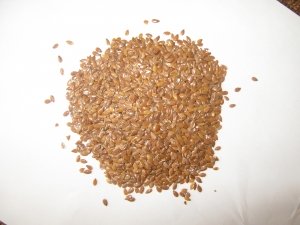
- Hemp seeds
- Flaxseeds
- Pumpkin seeds
- Walnuts
- Soybean oil
- Canola oil
Zinc
Zinc is an essential nutrient that your body needs to function properly in a variety of ways. It is vital for growth and development, a strong immune system, healthy brain function, reproduction, the healing of wounds and so much more. It's the most abundant nutrient found in the cells in your body, but it's not something the body produces naturally. Instead, it is absorbed from the foods, vitamins and supplements you consume on a day to day basis.
- Whole-grain breads
- Beans
- Lentils
- Soy foods
- Vegetables
More Vegetarian Diet and Nutrition Information:
Home | Vegetarian Nutrition | Balanced Vegetarian Diet
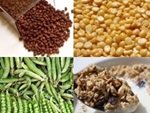
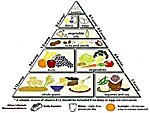






New! Comments
Have your say about what you just read! Leave a comment in the box below.